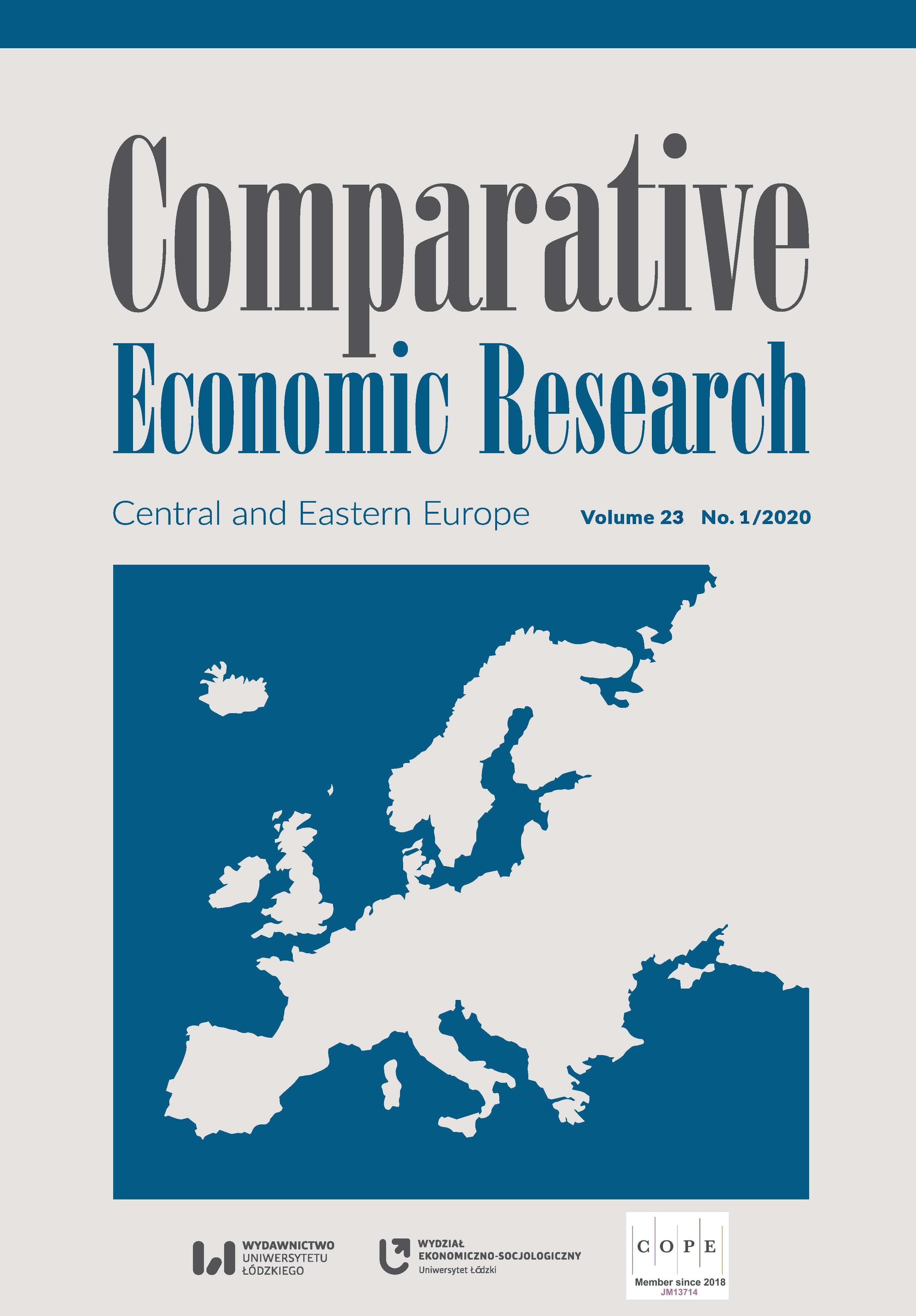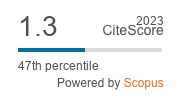Comparative Studies of National Business Cultures in the Countries of Central and Eastern Europe: the Basics for Improving International Entrepreneurship in Poland and Ukraine
DOI:
https://doi.org/10.18778/1508-2008.23.01Keywords:
comparative studies, national business culture, measuring parameters of national business cultures, management, communications, marketing, internationalization, Poland, UkraineAbstract
Based on the work of Hofstede, Trompenaars, Lewis, and Rapaille, the founders of the theory of national business cultures and comparative economic studies, the characteristics of corresponding scientific areas are identified: cross-cultural management, cross-cultural communications, and cross-cultural marketing, including their methodological and practical aspects. Using the classic measuring parameters of national business cultures (“Individualism,” “Power Distance,” “Masculinity,” “Uncertainty Avoidance,” “Long-Term Orientation,” “Indulgence”), a comparative analysis is carried out on the example of Poland, Ukraine, Germany, France, and Hungary; the results of the authors’ own development of this interdisciplinary problem are presented. On this basis, new approaches are proposed in establishing mutually beneficial international cooperation between Polish and Ukrainian enterprises, not only in Europe but also in other regions of the world.
Downloads
References
Deresky, H. (2000), International management: Management across borders and cultures, Upper Saddle River, NJ: Prentice-Hall.
Google Scholar
Glinkowska, B. (2018), Internacjonalizacja polskich i ukraińskich przedsiębiorstw, Wydawnictwo Uniwersytetu Łódzkiego, Łódź.
Google Scholar
Glinkowska, B., Chebotarov, V. (2018), A Comparative Cross-Cultural Analysis of the Profile of A Modern Ukrainian Manager: the Imperatives of the Future in the Context of Internationalization, “Comparative Economic Research Central and Eastern Europe” (1508–2008), Vol. 21, No. 3, pp. 63–74. https://doi.org/10.2478/cer–2018–0019
Google Scholar
Glinkowska, B., Kaczmarek, B. (2016), Zarządzanie międzynarodowe i internacjonalizacja przedsiębiorstw. Teoria i praktyka, Wydawnictwo Uniwersytetu Łódzkiego, Łódź.
Google Scholar
Hofstede, G. (1980), Culture’s consequences: International differences in work-related values, Beverly Hills, CA: Sage Publications.
Google Scholar
Hofstede, G. (1994), Culture and organizations: Intercultural cooperation and its importance for survival – software of the mind, HarperCollins, London.
Google Scholar
Hofstede, G. (2011), Culture’s consequences: Comparing values, behaviors, institutions and organizations across nations (second editions), Thousand Oaks: Sage Publications.
Google Scholar
Lee, K. Y. (2000), From Third World to First: 1965–2000: Memoirs of Lee Kuan Yew, Vol. 2, Harper.
Google Scholar
Lewis, R. (1999), Cross Cultural Communication: A Visual Approach, Transcreen Publications.
Google Scholar
Lewis, R.D. (2005), When Cultures Collide: Managing successfully across cultures, 3th ed. Nicholas Brealey Publishing.
Google Scholar
Listwan, T., Stor, M. (red.) (2008), Zarządzanie kadrą menedżerską w organizacjach międzynarodowych w Polsce, Wydawnictwo Uniwersytetu Ekonomicznego, Wrocław.
Google Scholar
Pocztowski, A. (2002), Międzynarodowe zarządzanie zasobami ludzkimi, Oficyna Ekonomiczna, Kraków.
Google Scholar
Rapaille, C. (2004), 7 Secrets of Marketing in a Multi-Cultural World., 2nd ed. Tuxedo Production.
Google Scholar
Rapaille, C. (2007), The Culture Code, Broadway Books.
Google Scholar
Sitko-Lutek, A. (2004), Kulturowe uwarunkowania doskonalenia menedżerów, Wydawnictwo Uniwersytetu M. Curie-Skłodowskiej, Lublin.
Google Scholar
Trompenaars, F. (1993), Riding the waves of culture: Understanding cultural diversity in business, Economist Books, London.
Google Scholar
Trompenaars, F., Woolliams, P. (2003), Business across cultures, West Sussex: Capstone Publishing.
Google Scholar
Hlinkows`ka, B., Chebotariow, Ye., Chebotariow, W. (2018), Кrоs-kul`turni pidpryiemnyc`ki komunikacii: nawchal`no-metodychnyi posibnyk dl`a mahistrantiw. Derż. Zakl., “Luhan. nac. un-t imeni Tarasa Shewchenka, Starobil`s`k.
Google Scholar
Todorowa, N. (2008), Кrоs-kul`turnyi menedzhment, DоnNTU, Donec`k.
Google Scholar
Chebotariow, W.A. (2016), Chwert` stolittia ukains`ko-amerykans`koi druzhby: dopomohaty Mercy Corps jak model` miżnarodnoi spiwpraci u podolanni naslidkiw wiis`kowoho konfliktu na Donbasi/Ahora. Wyp.16. – 2016. – s. 37–41.
Google Scholar
Chebotariow, W.A., Kolosow, A.M., Markow, R.W. ta in. (2016), Osnowy biznes–planuwannia w mikro-pidpryiemnyctwi (nauk.-prakt. Dowidnyk dl`a beneficiariw Mercy Corps) – Starobil`s`k: DZ. “Luhan. nac. un-t imeni Tarasa Shewchenka”.
Google Scholar
Downloads
Published
How to Cite
Issue
Section
License

This work is licensed under a Creative Commons Attribution-NonCommercial-NoDerivatives 4.0 International License.











